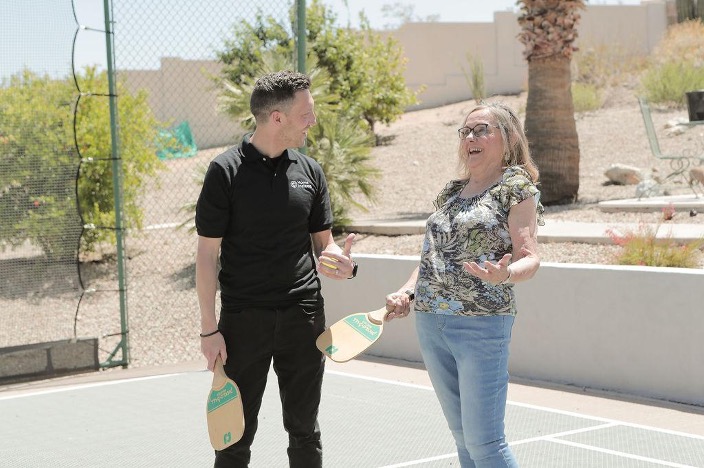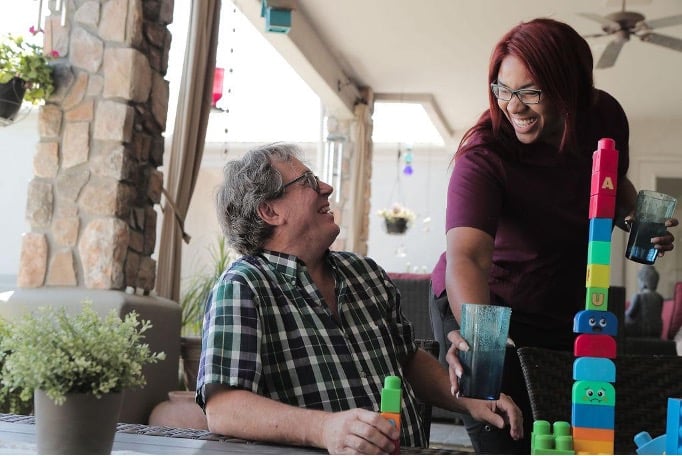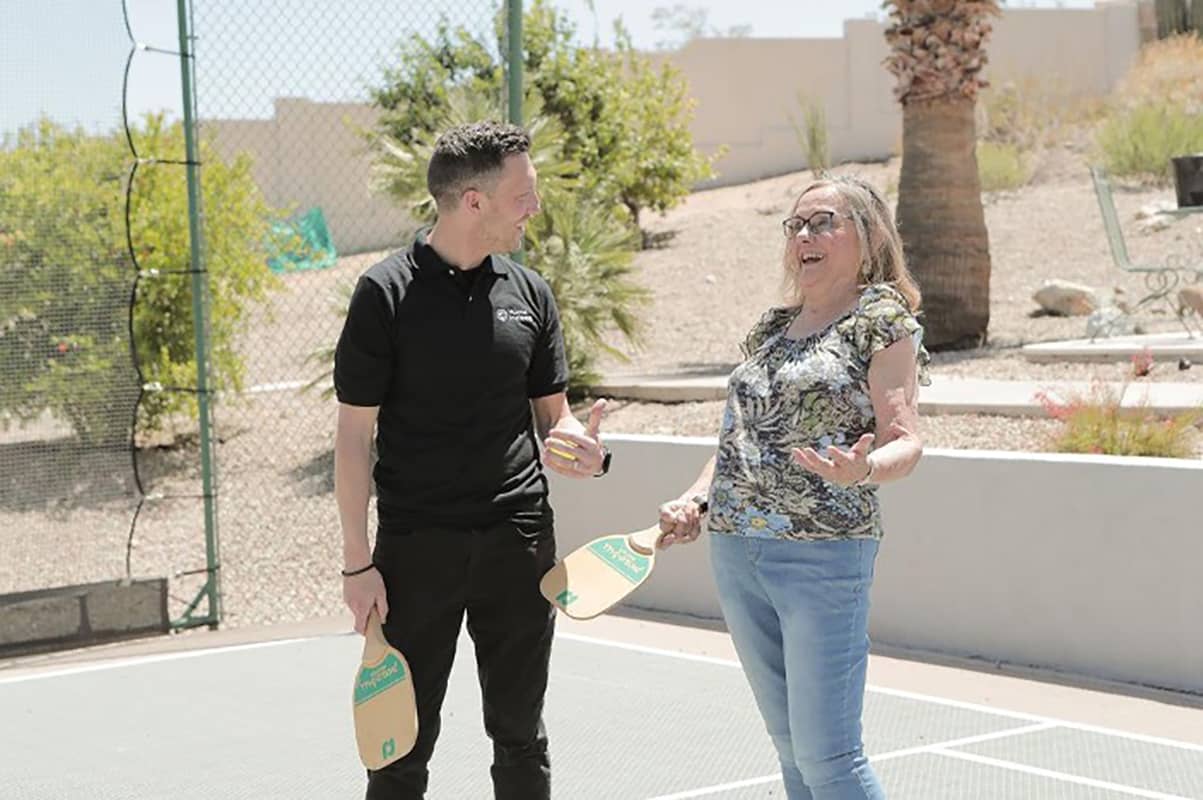For every stage of life your loved one with dementia is experiencing, there are many successes bumps in the road. Although it’s easy as a caregiver to focus on the negative, we want to help support you through every phase so you can appreciate the joy you still have together.
Today, we will be discussing our caregiver’s guide for what each stage of dementia looks like, but more importantly how to navigate it with compassion. Here are our most asked questions and how we answer our families:
As my loved one’s caregiver, why should I know their stage of dementia?
Dementia is a complex condition, and it doesn't unfold in a one-size-fits-all manner. It's a gradual journey through various stages, each with its own unique characteristics. As a caregiver, your role is to be a guiding light for your loved one through these stages.

What is the first stage of dementia? How can I help as a caregiver?
The early stage of dementia can be subtle and challenging to detect. Your loved one may exhibit mild memory lapses or changes in behavior. Here's how our Care Pros typically navigate this stage:
- Communication Strategies: Communication might become slightly challenging during this stage. Be patient and understanding when conversing with your loved one. Allow them the time they need to express themselves. Use clear and simple language. Avoid correcting or arguing with them about facts.
- Memory Aids: Consider introducing memory aids like calendars, notes, or reminders on their smartphone. These tools can help them maintain their independence and manage daily tasks.
- Emotional Support: Understand that your loved one may be experiencing fear or frustration about their memory lapses. Offer reassurance and emotional support. Encourage them to share their feelings with you.
What is the middle stage of dementia? Does caregiving look different?
As dementia progresses to the middle stage, the challenges become more apparent. Your loved one may need increasing assistance with daily activities, and behavioral changes can be demanding. The care you provide for your loved one will look different, here’s what we recommend:
- Behavioral Issues: Be patient and empathetic when dealing with difficult behaviors like agitation or aggression. Try to identify triggers and use redirection techniques rather than confrontation.
- Daily Care: Assist with personal care activities such as bathing, dressing, and grooming. It's crucial to respect their dignity and maintain their sense of self-worth throughout these tasks.
- Safety Concerns: Take steps to ensure their safety. This may involve installing locks on doors, removing potential hazards, and supervising certain activities.
What is the late stage of dementia? How do I support my loved one during this time?
The late stage of dementia is undoubtedly the most challenging. Your loved one becomes increasingly dependent on your care. During this stage, ensuring your loved one’s comfort and ease are paramount:
- Communication: Even if your loved one can no longer speak, continue to engage with them through touch, music, or familiar routines. Non-verbal communication can convey love and comfort, fostering a deep connection.
- Palliative Care: In some cases, transitioning to palliative care or hospice may be necessary. These services prioritize comfort and quality of life for your loved one in their final stages. To help with finding the correct support for your loved one, don’t hesitate to reach out to Home Instead.
- End-of-Life Decisions: Although these conversations are difficult, it’s important to discuss end-of-life wishes with your loved one and their trusted healthcare team. Documenting their preferences in advance can provide peace of mind down the line for all parties.

No matter what stage of dementia your loved one is currently experiencing, your ultimate job as their caregiver is to remain by their side throughout all the changes. By approaching each stage with patience, understanding, and love, you can provide the best possible care for your loved one and offer them the comfort they need throughout their journey with dementia.
If you find yourself struggling to navigate any of the stages of dementia, from either a caregiving or familial perspective, Home Instead is here to help.



